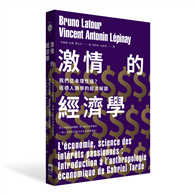Evidence is mounting that humanity’s chances of making it through the present century with its civilisation intact are dwindling on account of global warming, biodiversity loss, the unrepentant pursuit of economic growth and the inability to think in the long term. In view of this, it is worth investigating whether downfall is inevitable given the vulnerabilities inherent to human nature and the problems that we have always had in exercising power and discretion wisely. Downfall: Lessons for our Final Century argues that an adverse outcome to the present crisis is practically inescapable because it is too deeply rooted in our historical, psychological, and biological conditioning. While there are admirable stirrings, like the Extinction Rebellion, or the advocacy of Green New Deals, human agency is too fractured to produce the kind of rapid shifts needed to deal with global ecological collapse. Governments declare climate emergencies in one breath and take actions, like continuing to subsidise coal, on the other. In explaining why we are almost certain to fail, Downfall breaks the challenges we face down into seven essays that identify what needs to change if civilisation is to survive.
| FindBook |
有 1 項符合
Downfall: Lessons from Our Final Century的圖書 |
 |
Downfall: Lessons from Our Final Century 作者:Niaz 出版社:Cscr, Islamabad 出版日期:2022-08-31 語言:英文 規格:平裝 / 138頁 / 22.86 x 15.24 x 0.81 cm / 普通級/ 初版 |
| 圖書館借閱 |
| 國家圖書館 | 全國圖書書目資訊網 | 國立公共資訊圖書館 | 電子書服務平台 | MetaCat 跨館整合查詢 |
| 臺北市立圖書館 | 新北市立圖書館 | 基隆市公共圖書館 | 桃園市立圖書館 | 新竹縣公共圖書館 |
| 苗栗縣立圖書館 | 臺中市立圖書館 | 彰化縣公共圖書館 | 南投縣文化局 | 雲林縣公共圖書館 |
| 嘉義縣圖書館 | 臺南市立圖書館 | 高雄市立圖書館 | 屏東縣公共圖書館 | 宜蘭縣公共圖書館 |
| 花蓮縣文化局 | 臺東縣文化處 |
|
|
圖書介紹 - 資料來源:博客來 評分:
圖書名稱:Downfall: Lessons from Our Final Century
|











